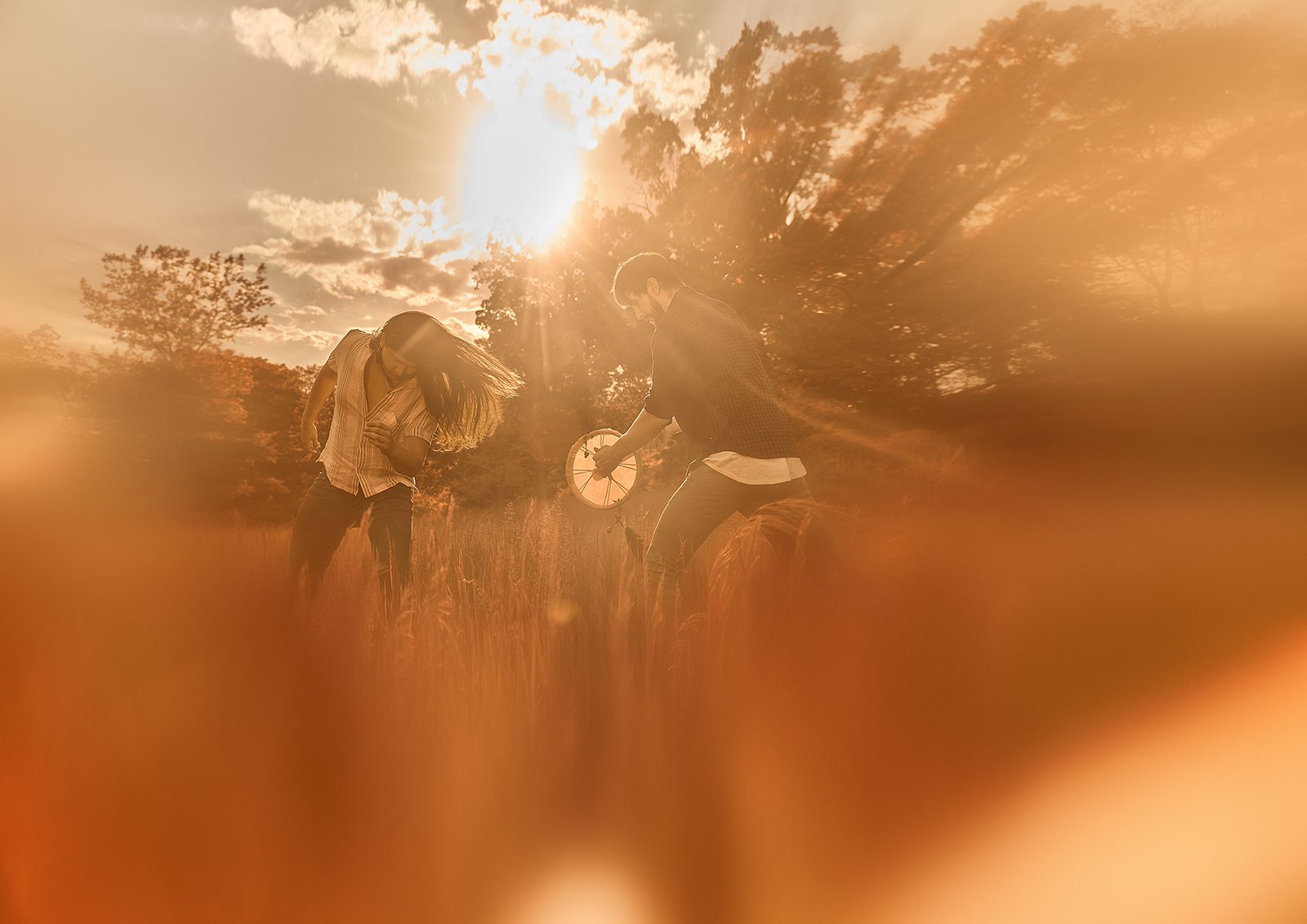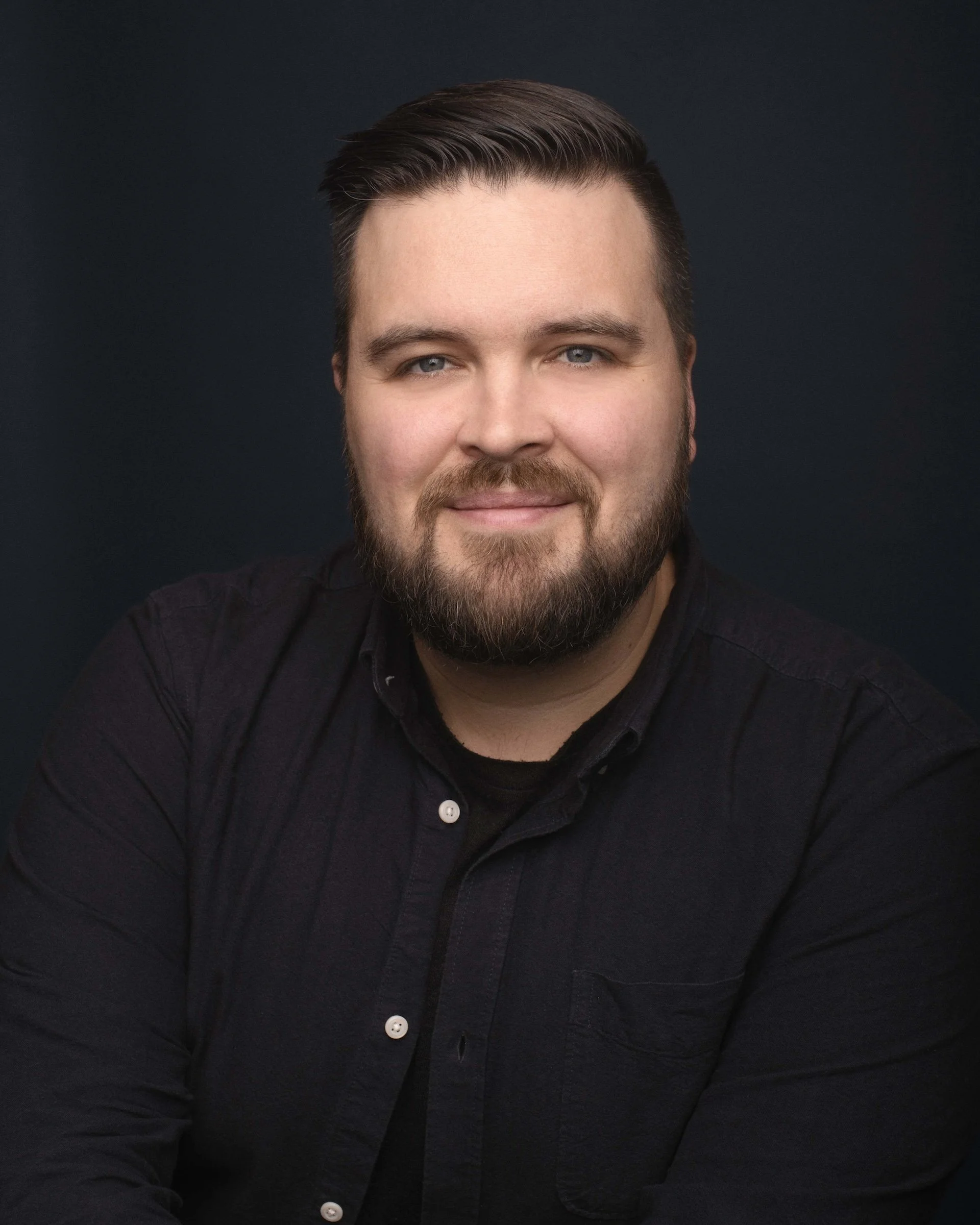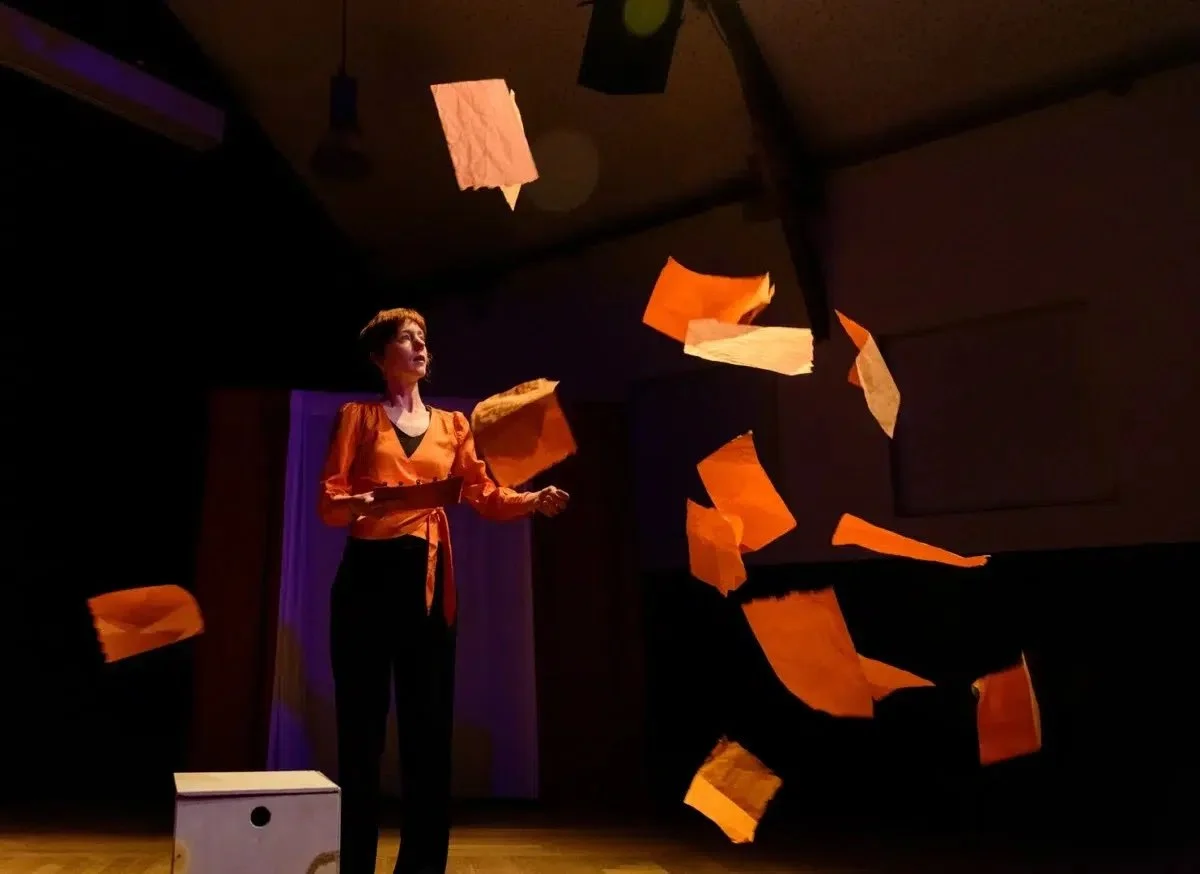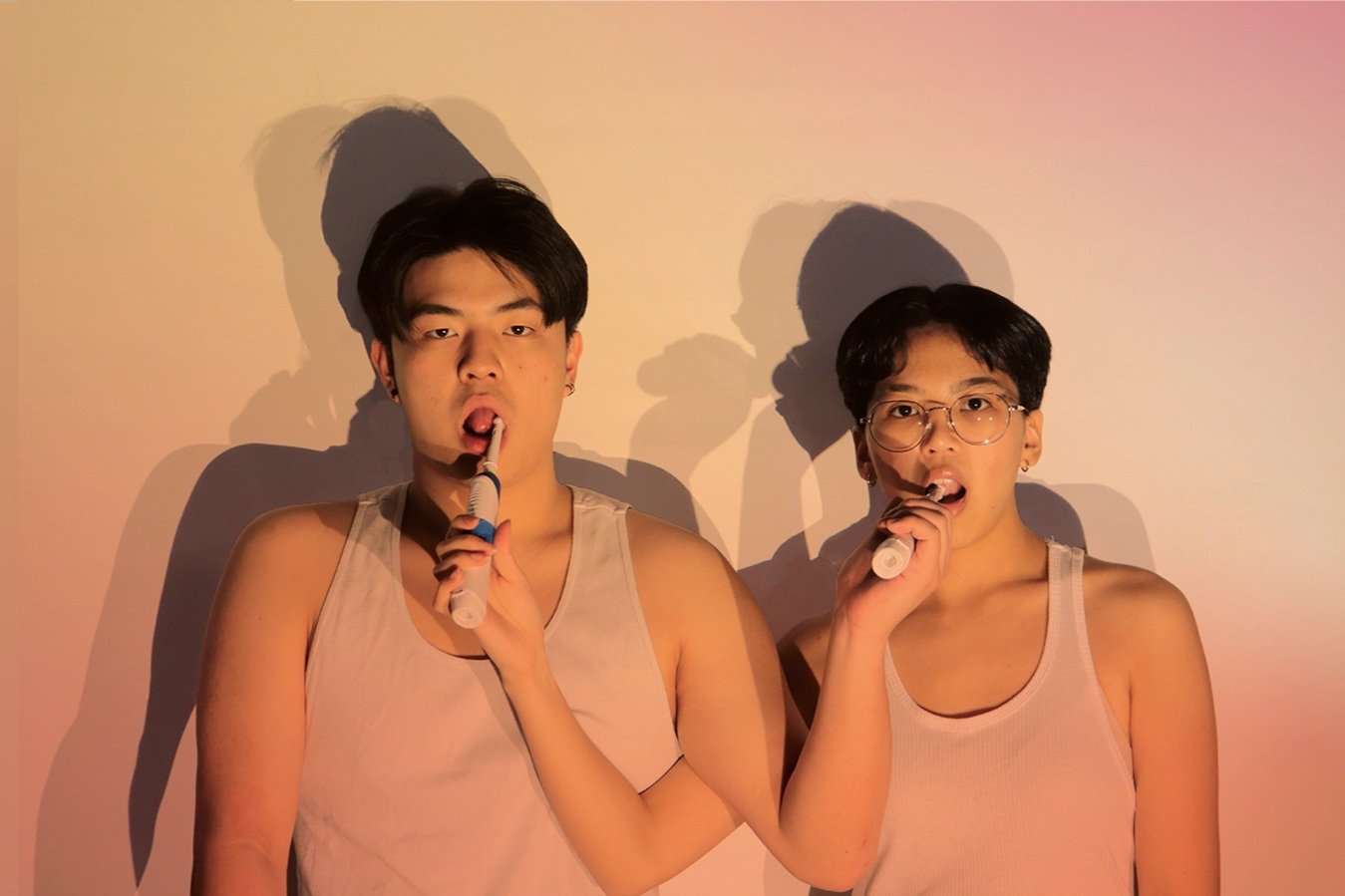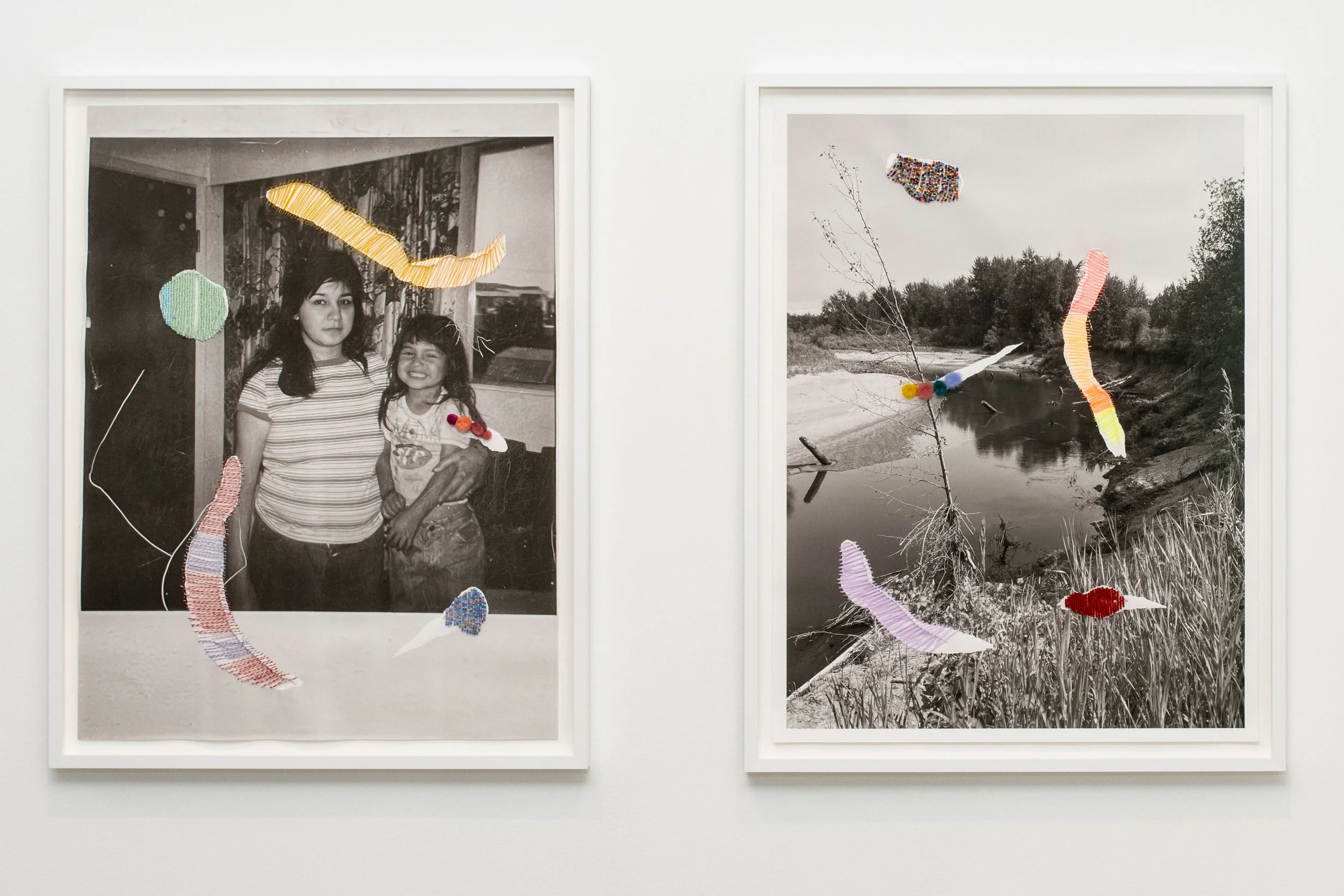Stir Q&A: At fifth annual TRANSFORM Festival, Corey Payette honours Indigenous artistry
Festival co-curated with The Cultch’s Heather Redfern features the workshop premiere of Payette’s musical On Native Land, plus a new choral composition
On Native Land. Photo by Matt Barnes
Urban Ink presents the TRANSFORM Festival in collaboration with The Cultch from November 6 to 9 at the Vancouver Playhouse
FIVE YEARS AGO, Urban Ink’s artistic director Corey Payette founded the TRANSFORM Festival, a cabaret-style celebration of Indigenous artistry and community collaboration, with The Cultch’s executive director Heather Redfern.
The inaugural edition in 2019 featured boundary-pushing multidisciplinary performances by the likes of all-Indigenous burlesque troupe Virago Nation and non-binary drag collective The Darlings. Though the following year saw a digital pivot necessitated by the pandemic, the festival only continued to gain traction—which brings us to today.
This year, Payette and Redfern have co-curated another all-star lineup of both Indigenous and non-Indigenous talents alongside Musqueam protocol keeper Quelemia Sparrow, who has supported the event since its inception. Across four days, audiences will see everything from a drag performance by Venus (the first-ever Indigenous winner of Canada’s Drag Race) to traditional hoop dance by TikTok star Notorious Cree (aka James Jones).
Payette, a member of the Mattagami First Nations with French Canadian and Irish ancestry, has been artistic director of Urban Ink since 2014. He is a writer, composer, and director whose musical credits include Sedna, which centres the Inuit legend of Sedna, Goddess of the Arctic Sea; the nationally touring Children of God, a musical about a family dealing with the effects of residential school; and Les Filles du Roi, a 1665-set story told in English, French, and Kanien’kéha (Mohawk), which was also adapted into a full-length feature film that premiered at last year’s Vancouver International Film Festival. In 2021, he was awarded a BC Reconciliation Award for his leadership in the realm of Indigenous reconciliation in the province.
Audiences can catch Payette at the Vancouver Playhouse for two different TRANSFORM Festival events. On November 8, he’ll be premiering a new composition during In Spirit, a concert sung by Chor Leoni and the Vancouver Youth Choir in honour of National Indigenous Veterans Day; and on November 9, there will be a workshop performance of his new musical On Native Land, a tale of Indigenous identity which converges the stories of three characters: a lawyer, a Chief, and a singer-songwriter.
Ahead of all the happenings, Stir touched base with Payette to learn more.
Corey Payette. Photo by Greggory Clark
What was the creation process for On Native Land? Was there any particular thought, question, or idea that led you to develop it?
The creation process for On Native Land began in 2019, and has been steadily evolving through workshops, residencies, and collaboration with the community. Over the past few years, the musical has grown into a layered narrative, exploring the complexities of land reclamation, identity, and resilience.
How are you addressing the concept of Indigenous identity fraud through the musical’s characters?
The musical explores Indigenous identity fraud by revealing how false claims disrupt legal efforts, erode community trust, and challenge personal authenticity. Through its characters, the story highlights the profound impacts fraudulent acts have on both individual and collective Indigenous identities.
In what way might the musical call audiences to action?
On Native Land calls audiences to action by highlighting the urgent need for land reclamation and Indigenous rights, challenging them to reflect on their own role in these issues. In the workshop sharing on November 9, audiences can expect a raw, powerful exploration of identity and land, conveyed through bold characters, stirring music, and emotionally charged storytelling.
Corey Payette. Photo by Luke Fontana
Can you tell us about the new compositions premiering as part of In Spirit?
The compositions for In Spirit by myself, Russell Wallace, and Alexis Vollant blend traditional Indigenous elements with modern choral arrangements, creating a reflective atmosphere. The music honours Indigenous veterans by evoking feelings of respect, pride, and remembrance, resonating deeply with the themes of National Indigenous Veterans Day. The compositions not only honour Indigenous veterans, but also address the complex histories and ongoing impacts of their service, offering a space for reflection on their contributions and struggles.
Reflecting on the TRANSFORM Festival’s history ahead of its fifth edition, what has changed since it first began—and what has stayed consistent?
Looking back on the TRANSFORM Festival’s five-year history, one notable evolution is its shift from digital and hybrid presentations during the pandemic back to live, in-person performances. What has remained consistent is the festival’s commitment to empowering Indigenous voices and fostering collaboration between Indigenous and non-Indigenous artists.
This unique platform continues to promote cultural exchange, community building, and social change through powerful performances. Moving forward, the festival aims to grow even further, with hopes of expanding its reach and influence, continuing to showcase cutting-edge, transformative, Indigenous-led artistry.
![]()



